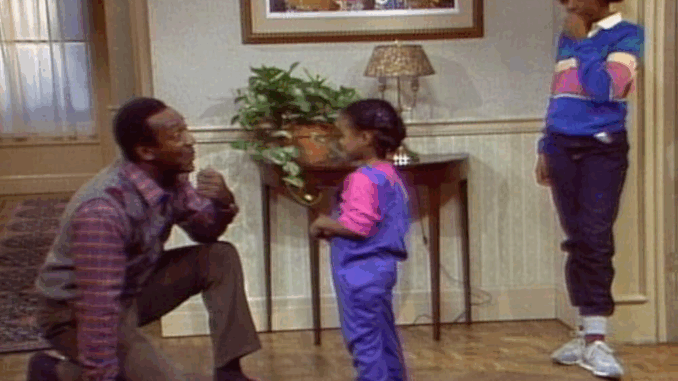
When The Cosby Show first aired in 1984, no one could have predicted the seismic impact it would have—not only on television, but on the cultural fabric of America. At a time when sitcoms often relied on stereotypes or surface-level narratives, The Cosby Show dared to tell a different story: one of dignity, ambition, and everyday joy within an upper-middle-class African American family.
Breaking Barriers Without Preaching
At its core, The Cosby Show followed the lives of the Huxtables, a family headed by Dr. Heathcliff Huxtable, an obstetrician, and his wife Clair, a successful attorney. Their five children navigated relatable situations—from high school struggles to sibling rivalries—set against the backdrop of a warm, supportive household.
What made the show revolutionary wasn’t just its predominantly Black cast, but its refusal to conform to the limitations Hollywood had long imposed on them. This was not a family battling poverty or crime. Instead, it was a portrait of Black excellence—well-educated, professional, and proud.
Cultural Impact and Global Influence
The Huxtables represented what had often been invisible in mainstream media: Black success without apology. For millions of viewers, both Black and non-Black, The Cosby Show was their first exposure to the idea that African American families could thrive in the same ways traditionally reserved for white counterparts in television.
Globally, the show was syndicated in over 100 countries, introducing international audiences to a more nuanced and uplifting view of African American life. From Africa to Asia, it sparked conversations about race, class, and representation.
Timeless Comedy, Universal Themes
Despite its cultural importance, The Cosby Show never lost sight of its primary mission: to entertain. The humor was smart and heartwarming, blending classic sitcom tropes with teachable moments that resonated across generations. Who could forget the iconic lip-syncing scene to Ray Charles’ “Night Time Is the Right Time”? Or Theo’s hilarious lesson on budgeting?
The writing was tight, the performances authentic, and the chemistry between cast members undeniable. The show didn’t rely on heavy-handed messaging; instead, it let its characters’ lives speak volumes.
Complicated Legacy, Enduring Message
In recent years, The Cosby Show has faced reevaluation due to the legal controversies surrounding Bill Cosby. It’s a difficult yet important conversation. However, many argue that the show’s cultural contribution—its redefinition of what Black families could look like on screen—stands apart from the personal actions of its creator.
The Huxtables weren’t perfect, but they were aspirational. They reflected not just a dream, but a reality many lived and others aspired to. That vision of Black excellence, family unity, and generational strength remains deeply relevant today.
Final Thoughts
The Cosby Show didn’t just entertain—it transformed. It reimagined the American family and inspired generations to believe in more inclusive stories. For all its complexities, its legacy continues to be one of the most powerful examples of how television can shape, challenge, and ultimately change the world.